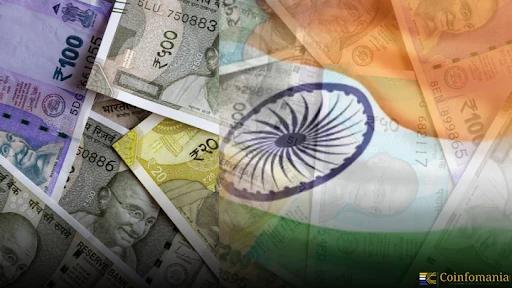Crypto Taxation in Pakistan: A Complete Guide
Cryptocurrency is buzzing in Pakistan, with millions of people trading digital coins like Bitcoin and Ethereum by 2025. It’s a quick way to send money abroad or grow savings, especially with 15-20 million Pakistanis dealing in crypto worth $20 billion in 2024. Understanding taxes is key to staying legal. The Federal Board of Revenue (FBR) […]

Cryptocurrency is buzzing in Pakistan, with millions of people trading digital coins like Bitcoin and Ethereum by 2025. It’s a quick way to send money abroad or grow savings, especially with 15-20 million Pakistanis dealing in crypto worth $20 billion in 2024. Understanding taxes is key to staying legal. The Federal Board of Revenue (FBR) is stepping up to manage this, setting rules to tax crypto and bring in cash for the country.
Tax Authorities & Regulations
The Federal Board of Revenue (FBR) handles crypto taxes in Pakistan, working with the Ministry of Finance. The State Bank of Pakistan (SBP) and Securities and Exchange Commission (SECP) also watches the scene. In 2025, new rules call crypto “digital assets,” not money, building on talks from 2022. The Pakistan Crypto Council (PCC), formed in March 2025, pushes for clear laws after years of bans. Now, taxes hit when people profit or earn, thanks to pressure from the IMF for a $3 billion bailout.
Types of Crypto Taxes in Pakistan
Pakistan taxes crypto, based on how it’s used:
- Capital Gains Tax (CGT): Selling crypto for more than you paid gets taxed, starting in 2025.
- Income Tax: Money from mining, staking, or crypto transactions counts as regular earnings and gets taxed.
- Conversion Taxes: Turning crypto into rupees might face a 5% tax for foreign accounts or 10% for Roshan Digital accounts, as proposed by the FPCCI.
- No VAT Yet: Goods taxes don’t hit crypto trades so far, but that could change.
Tax Rates & Brackets
Here’s how taxes work:
- Capital Gains Tax is set at 15% on crypto profits in 2025, pushed by the IMF and PCC.
- Income tax follows normal rates—5% for low earners (up to ₨600,000 yearly) to 35% for high earners (over ₨12 million), with businesses at 29%.
- Small trades under ₨.50,000 might skip CGT, but no big breaks are locked in yet.
Crypto Transactions & Tax Treatment
Crypto deals get taxed like this:
- Buying crypto with rupees isn’t taxed, but selling for profit means 15% CGT.
- Mining or staking cash is taxed as income when it lands.
- Getting paid in crypto for work or goods counts as taxable income.
- Swapping crypto—like Bitcoin for Ethereum triggers CGT if there’s profit.
- DeFi earnings from lending or farming face income tax.
- NFT sales hit CGT if they make money.
Crypto Tax Reporting & Compliance
Pakistanis must report crypto to the FBR using yearly tax returns—Form IT-1 for people, IT-2 for businesses—due by September 30, like September 30, 2025, for 2024. They track trades with dates, amounts, and rupee values from apps like Binance. Exchanges will share data starting mid-2025, thanks to new rules. Missing the deadline means fines from ₨ 10,000 to ₨ 50,000, or jail for big dodgers.
Tax Deductions & Exemptions
Tax breaks are slim in Pakistan. Losses from crypto might lower income tax if reported that year, but not CGT yet. Businesses could cut mining costs from income tax. Earnings under ₨ 600,000 skip tax for all, but crypto gets no special pass. The FBR keeps it tight in 2025.
Enforcement & Penalties for Non-Compliance
In 2025, the FBR gets strict, using blockchain tools and exchanges KYC to track trades. With 9 licensed platforms reporting, they’ll spot big moves. Skipping taxes brings fines—₨10,000 to ₨ 50,000 for the population, up to 3% of trade value for firms, plus 20% yearly interest. Big cheats face jail, and global teamwork catches overseas tricks. Peer trades sneak by sometimes, but it’s riskier now.
Future of Crypto Taxation in Pakistan
Crypto taxes might grow after 2025. The IMF wants more, maybe pushing CGT to 20% by 2026 for bailout cash. The PCC and Finance Minister aim for a “pro-growth” setup, possibly adding startup perks if crypto booms. Legalization in March 2025 flips old bans, eyeing $100 million yearly tax hauls.
Conclusion
Pakistan’s crypto taxes in 2025 mean a 15% CGT on profits, income tax on earnings, and strict filing, all under the FBR’s watch. People should log trades and file by September 30 to dodge fines or jail. With rules tightening, a tax pro can keep the population safe and smart with crypto.
Frequently Asked Questions (FAQs)
How do Pakistanis report crypto profits to the FBR?
People in Pakistan must tell the Federal Board of Revenue (FBR) about their crypto earnings using Form IT-1 for individuals or IT-2 for businesses. They list all trades—dates, amounts, and rupee values—from apps like Binance, filing by September 30 each year, like September 30, 2025, for 2024 profits.
What happens if someone skips crypto taxes in Pakistan?
If Pakistanis don’t pay their crypto taxes, the FBR can fine them ₨10,000 to ₨50,000, or up to 3% of the trade value for businesses, plus 20% interest yearly on what’s owed. Big tax dodgers might even face jail time in 2025.
Are small crypto trades tax-free in Pakistan?
In 2025, small crypto sales under ₨50,000 might avoid the 15% capital gains tax, but it’s not set in stone yet. Earnings from mining or staking still get income tax, no matter the size, unless total income stays below ₨ 600,000 yearly.
Why does the IMF care about Pakistan’s crypto taxes?
The IMF pushed Pakistan to tax crypto at 15% in 2025 as part of a $3 billion bailout deal. They want the FBR to collect more cash, like $100 million yearly, by tracking digital assets, which helps pay off loans and grow the economy.
Can Pakistanis cut taxes with crypto losses?
In Pakistan, losses from crypto trades might lower income tax if reported in the same year, but they won’t touch the 15% capital gains tax yet. Businesses could also trim income tax with costs like mining gear, but breaks are slim in 2025.
Follow us on Google News
Get the latest crypto insights and updates.
Related Posts

India Allows Global Trade Payments in Rupees to Reduce Dollar Use
Shweta Chakrawarty
Author

South Korea and Vietnam eye $150B trade despite Trump tariff
Shweta Chakrawarty
Author

Is U.S. Tariff Heat Bringing Russia, India, China Back Together?
Shweta Chakrawarty
Author